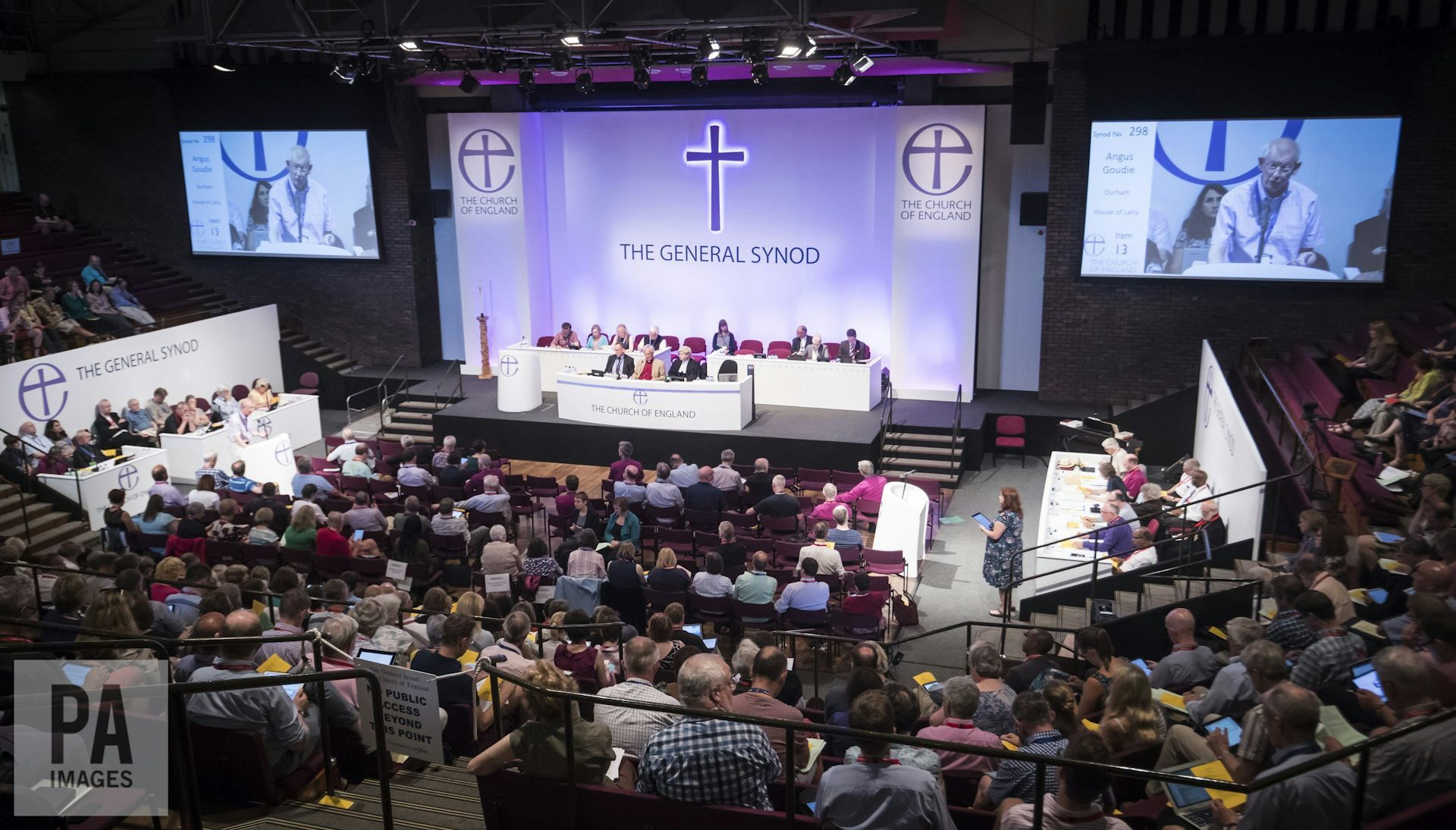
Author
Senior Lecturer in Theology and Religion, Edge Hill University
Disclosure statement
Chris Greenough works for Edge Hill University.
Partners
Edge Hill University provides funding as a member of The Conversation UK.
WE RECOMMEND THE VIDEO: Relationships part 7 - Offense and Forgiveness - Dr. Larry Ollison (August 4, 2019)
The Conversation UK receives funding from these organisations
- Email
- Twitter
- Facebook
- LinkedIn
- WhatsApp
- Messenger
The idea that to be gay is to be sick and in need of a cure might seem archaic and bizarre by mainstream standards, but among a few fundamentalist Christian groups, it lives on today.
Recently, one such group, the Core Issues Trust, booked a cinema in London’s West End for a film screening event which advocated conversion from homosexuality. The film, Voices of the Silenced, promotes the idea that people can be “rescued” from homosexual impulses and practices, and was also supported by representatives from Christian Concern. After an outcry, the screening was ultimately cancelled by the cinema, where the group staged a public protest on February 8.
This was an unusually conspicuous appearance by what remains a relatively fringe organisation. Core Issues Trust, Christian Concern and similar groups claim that people identifying as non-heterosexual can be “converted” into heterosexuals. Presently, there is no ban on gay conversion therapy in the UK. But whereas “ex-gay” ministries have received plenty of coverage in the US, it’s unusual to see a Christian group like this operating visibly in the UK.
For many, non-heterosexuality and Christianity are still hard to reconcile. This is largely due to the long history of negativity towards non-heterosexuals from Christian groups. Today, the Church of England’s position is much more promising: in 2017, the General Synod voted in favour of not continuing with its ban on blessing or marrying same-sex couples – a major rubicon in its journey towards full inclusiveness. What’s more, the Church of England General Synod has also called for a ban on gay conversion therapy.
But while it might sound like a sea change is underway, there’s still a way to go. While the Core Issues Trust’s values and actions are clearly out of date and largely out of favour, they still find enough of an audience to sustain themselves.
Clash of identities
Some Christians find it hugely difficult to reconcile their non-heterosexuality with their faith. This often leads to negative feelings of fear, anxiety, loneliness, confusion and self-hatred. Conversion therapies recognise and exploit the resulting negative emotions and internal conflict, and offer to resolve the clash of identities by “freeing” people from homosexuality.
In my book Undoing Theology: Life Stories from Non-normative Christians, I spend a chapter exploring the emotional roller coaster of one individual’s journey with Christian “conversion” therapy. Desiring release and repair from negative, internalised feelings, non-heterosexual people essentially find themselves forced to bargain – challenged to accept such a “cure” in exchange for a better life.
 Coming around: the Church of England is making progress on accepting and protecting non-heterosexual Christians. Danny Lawson/PA Archive/PA Images
Coming around: the Church of England is making progress on accepting and protecting non-heterosexual Christians. Danny Lawson/PA Archive/PA Images
While being involved in communities which offer such a “cure” can provide a space for the two incompatible identities of non-heterosexual individuals to temporarily coexist, the long-term consequences are damaging. Of course, throughout history, similar non-religious based “therapeutic” methods have been tried, among them extreme physical medical procedures: castrations, lobotomies, clitoridectomies and shock treatments. Then there are “psychiatric” procedures to deal with the mental state of the “sick” gay person, chief among them hypnosis.
As the protagonist in my book affirmed after spending 18 years within the ex-gay ministry, these extreme physical, psychological and spiritual attempts do not work. They are highly destructive and often painful – and their failure indicates that the very possibility of conversion is a lie.
Pushing back
Even for those who don’t undergo therapy themselves, the lie has pernicious impact. Proposing to “cure” or “convert” non-heterosexual people is a form of delegitimisation. It is wholly unethical. It is a denial of human rights. It encourages internalised homophobia and self-hatred. In the UK, both religion and sexuality are included in equality legislation as protected characteristics – but the screening in London shows that extreme religious views on sexuality are still being asserted in public.
Fortunately, a large proportion of both the clergy and the faithful who remain in the pews share inclusive, accepting attitudes more in step with the mainstream. And inside many Christian communities, efforts are underway to improve the situation further. Open Table offers an inclusive worship community and a safe sacred space for non-heterosexual and non-cisgender Christians. Many more groups offer bespoke opportunities for people to come together and practise their faith without negating their identity.
While the small minority of Christian groups spreading this negativity has not gone away, thankfully there are fewer examples of such hostility. (The Student Union at my own university recently celebrated pride week, and the Christian Union group publicly announced its solidarity.) Sexuality remains a controversial issue for the churches, but it also serves as a measure of inclusivity.
Evidently, some fundamentalist Christian groups remain obsessed with non-heterosexuality, and put considerable energy into railing against it wherever they can. The cumulative impact of their actions is highly damaging and toxic to the people they reach. A broad ban on conversion therapy – whether relating to sexuality or gender identity – is long overdue.